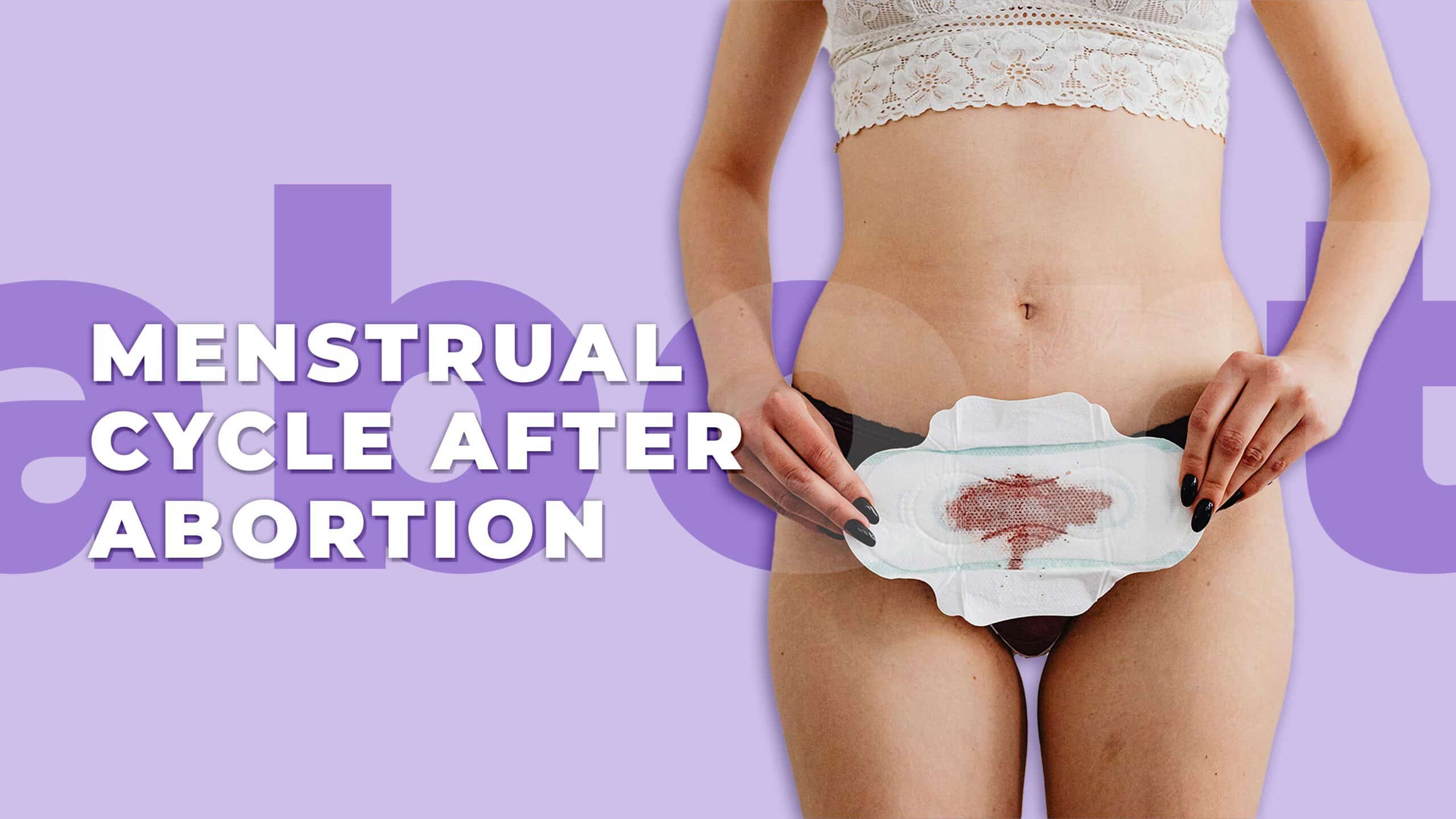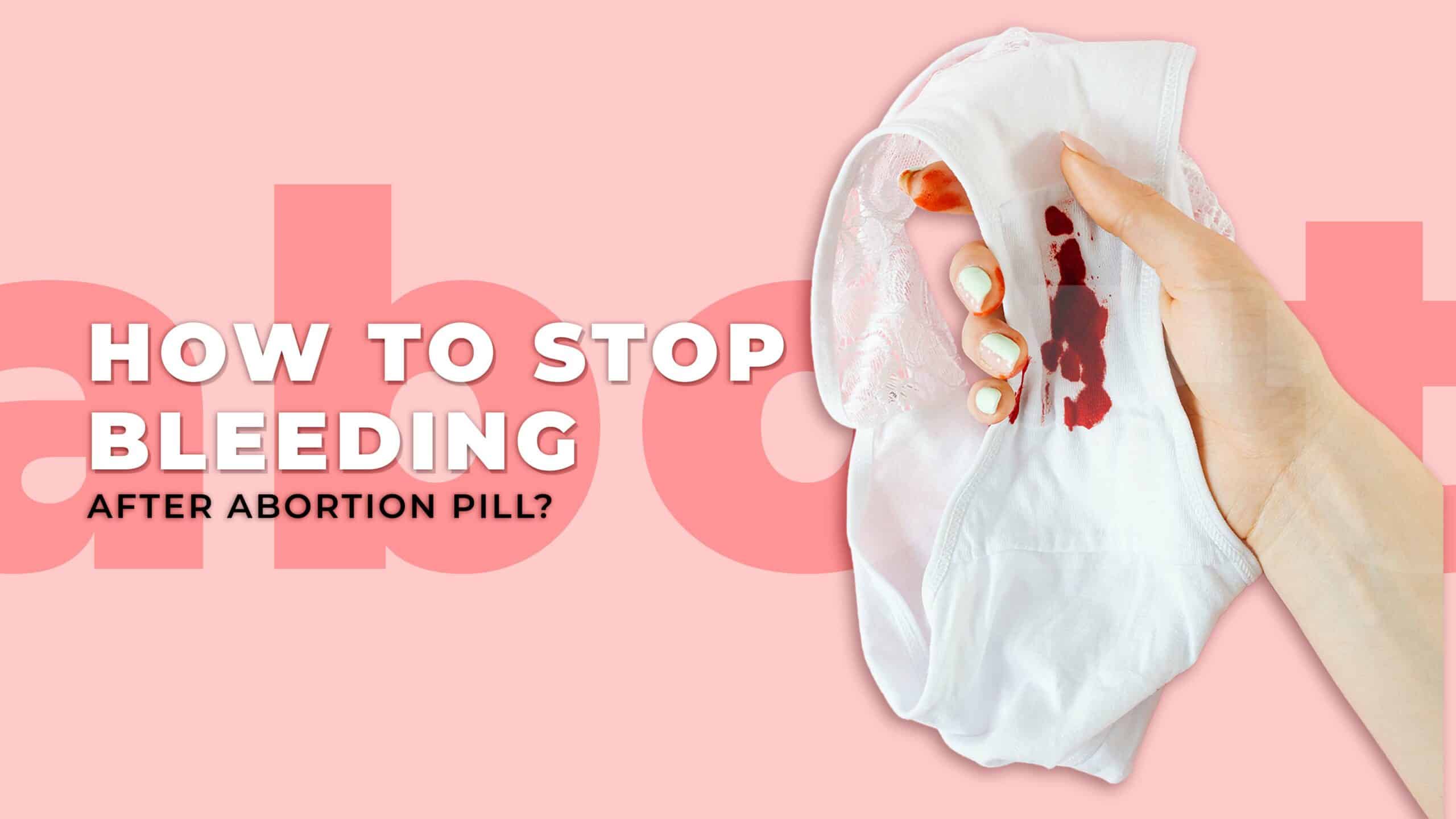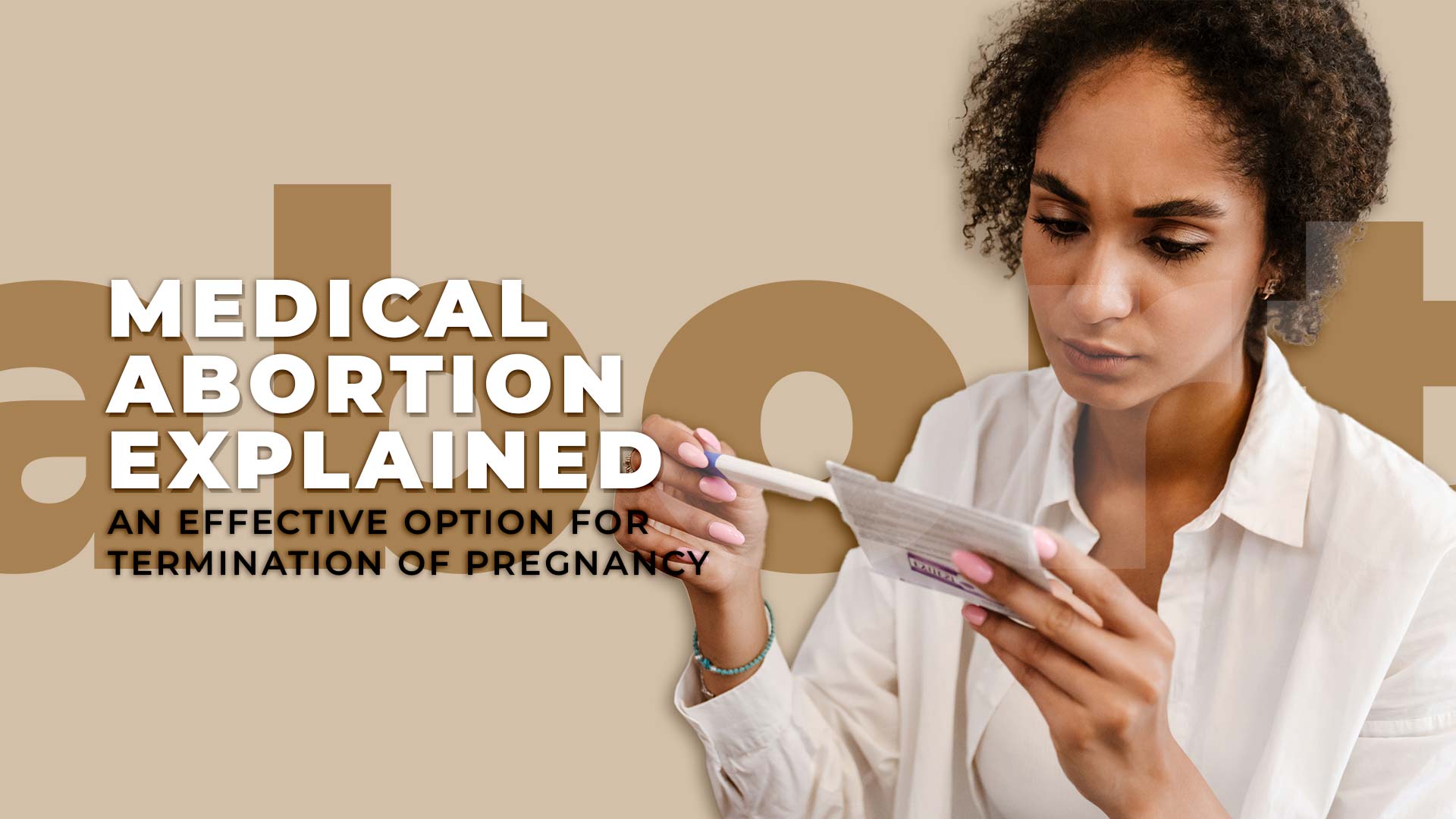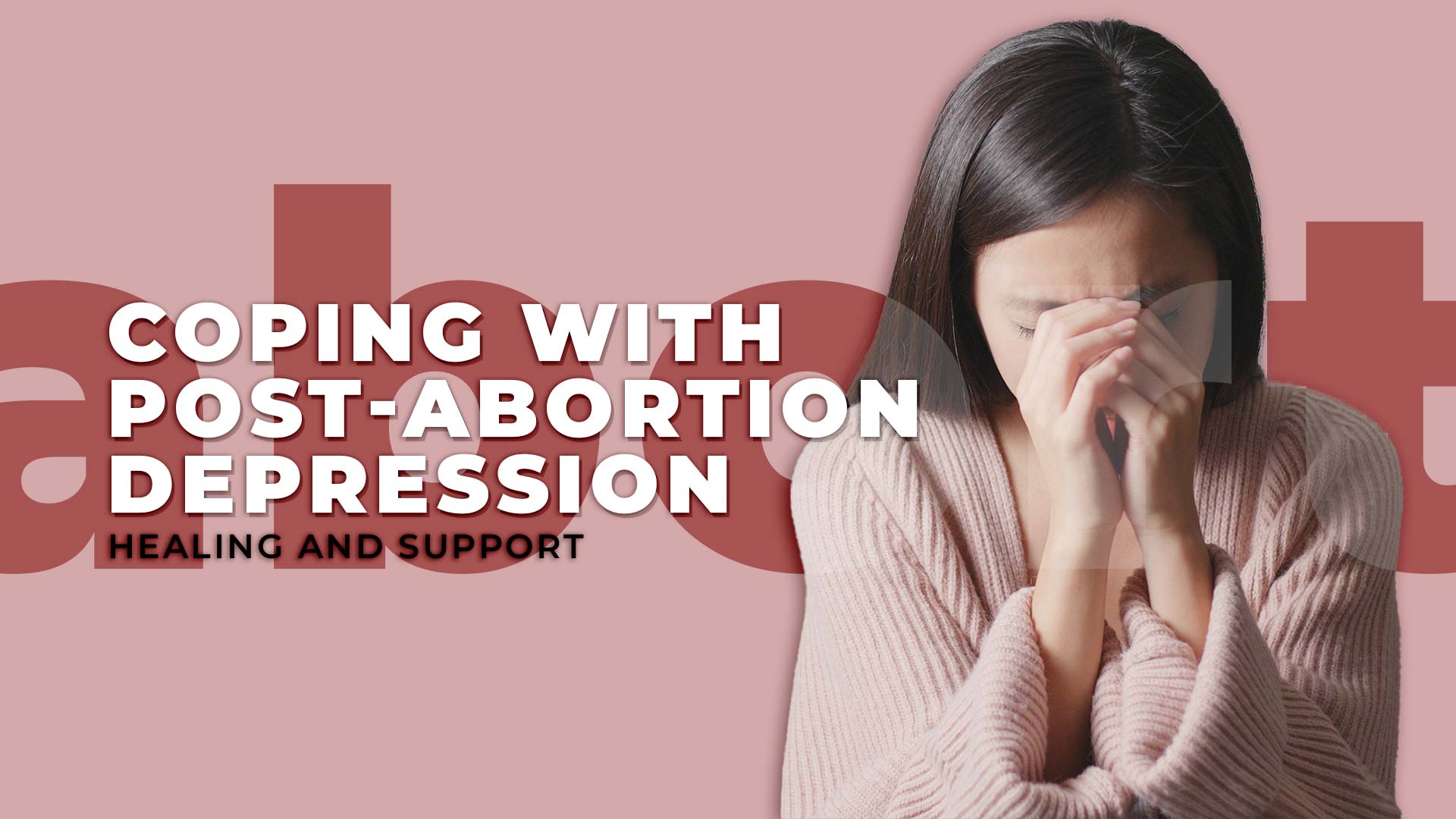Abortion is a legal and secure method to terminate a pregnancy. It can be performed safely and effectively with medications or surgery. It is estimated that around 25 million unsafe abortions occurred globally annually from 2010- 2014.[1] This is why consulting a medical professional becomes necessary who can guide you through the necessary steps required for an abortion. The menstrual cycle restarts as a result of abortions. Most women get their period 4-8 weeks after having an abortion.[2]
While the first period following a surgical abortion may be shorter and lighter, the first period following a medical abortion may be heavier and longer than previously. If their menstruation does not begin 8 weeks following an abortion or return to normal after 3 months, a person should consult their doctor. A person should consult their doctor if bleeding after an abortion is extremely severe, lasts more than two weeks, or has blood clots the size of a lemon.
In this article, we will explore how the menstrual cycle is influenced by medical and surgical abortions. Keep reading to discover what changes you can anticipate in your periods following an abortion.
Post Abortion Bleeding
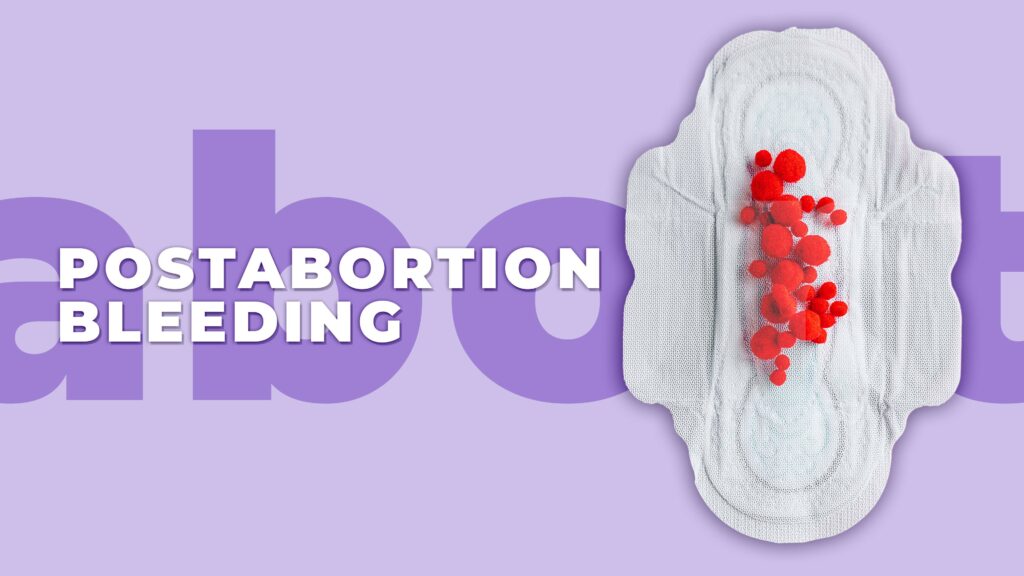
Following an abortion, many women experience some bleeding. Doctors refer to this as postabortion bleeding. After an abortion, it might be a good idea to utilize pads to note how much blood was lost. Abortion is classified into two types: medical and surgical.
After Medical Abortion
A medical abortion occurs when a doctor administers abortion pills to terminate a pregnancy. This procedure is possible throughout the first 10 -13 weeks of pregnancy.[3] A doctor will prescribe two medications for medical abortion: mifepristone to halt the pregnancy from progressing further and misoprostol to cause the uterus to discharge the pregnancy tissue. Misoprostol constricts the uterus, pushing pregnancy tissue to flow via the vagina. The bleeding following this treatment can be comparable to having a heavy period.[4] Some people bleed more than others, which may contain significant blood clots. After the pregnancy tissue has passed, a person may endure spotting or light bleeding for up to 2 weeks.
After Surgical Abortion
Typically, surgical abortions occur in the second trimester, following week 10 of pregnancy. Surgical abortion is classified into two categories. The first method is vacuum aspiration, which entails vacuuming out the pregnancy. The second procedure is called dilation and evacuation, and it entails using forceps to dilate the cervix and suction to remove the pregnancy. Doctors typically utilize vacuum aspiration up until approximately 14–16 weeks following a woman’s last period. They will typically advise dilation and evacuation after a longer period. Postabortion bleeding can also result from surgical abortions. The bleeding following this treatment can be comparable to having a light period.[4] After a surgical abortion, bleeding often lasts 1-2 weeks, and some patients may bleed up until their next period.
What is the Link Between Abortion and Menstrual Cycle?
One of the questions women ask after having an abortion is, “when do I get my period after abortion?” A person’s next menstruation often arrives 4 to 8 weeks after an abortion.[2] The menstrual cycle resumes after the abortion by emptying the uterus. The start date of a person’s next period is determined by whether or not they use birth control and, if so, what type.
If a person’s menstruation does not begin within 8 weeks of having an abortion, they should consult her doctor. Another question that arises after an abortion is, “how long does the first period after abortion last?” The duration of the first period might be shorter than usual for those who underwent a surgical abortion, but if you had a medical abortion, it might be longer. This irregularity is caused by the return of your hormones and menstrual cycle.
Does Abortion Cause an Irregular Menstrual Cycle?

The regularity of periods following an abortion may be impacted by certain birth control techniques. After an abortion, someone with irregular periods could still have them. Abortion can result in emotional stress, which may also impact a person’s menstrual cycle. Stress can alter how frequently a person’s periods. If they have irregular periods after having an abortion and have never had them before, they should consult a doctor.
What to Anticipate During the First Period after Abortion?
A person’s first period after a surgical abortion[7] could be shorter than usual. Because the uterus is empty following the abortion surgery, there is less tissue to expel, which may lead to a lighter period.
After a medical abortion, a person’s first period can be longer than usual because the procedure uses hormones that could affect cycle duration. This time frame may also be longer since the body can have more tissue to eliminate following the treatment. Women can track how much blood they lost by using pads the first time they get a period after an abortion.
What to Expect During the Second Period after Abortion?
After an abortion, a person’s second period will probably return to how it was before. Nevertheless, some individuals can discover that it takes two or three cycles for their periods to become regular. They need to consult their doctor if this does not occur.
Will birth control affect menstrual cycle?
After an abortion, most birth control methods, such as the pill, patch, condom, implant, and intrauterine device (IUD), can be resumed right away or within a few days. However, if you had a second-trimester abortion, you may have to wait for about four weeks before using inserted methods, such as the diaphragm, cervical cap, or IUD.
Hormonal birth control methods, such as the pill, may reduce the amount of bleeding and shorten the duration of your bleeding following an abortion. Additionally, being on the pill may help you return to your regular menstrual cycle more quickly.
When is it possible to get pregnant after an abortion?
You may start ovulating within two weeks following the abortion or earlier, which means you can conceive again even if your period has not yet resumed. It is recommended to discuss birth control options with your doctor.
In most cases, having an abortion does not impact fertility. However, there are concerns that repeated surgical abortions might cause intrauterine adhesions (scarring of the uterus) due to the use of instruments to extract the pregnancy. This scarring could be a possible cause of fertility issues in some instances.
When to Contact a Doctor?
In case of the following situations, it is advisable to seek immediate medical attention:
- Two or more sanitary pads are soaked through in a single hour for over two consecutive hours.
- Passing a blood clot that is larger than a lemon.
- Severe pain in the abdomen or back.
- The prescribed pain-relief medications do not alleviate the pain.
- Running a fever above 100.4°F (38°C).
- Experiencing chills or a foul-smelling discharge, yellow or green discharge.
- In case of a medical abortion, if no bleeding occurs within 24 hours, it is recommended to contact your healthcare provider. This could be a sign of an ectopic pregnancy, and your doctor may suggest a second dose of the medication or follow-up care.
- If your period does not resume within eight weeks following the procedure, you should see your doctor.
Final Word

The first period after abortion will typically return 4 to 8 weeks after your abortion. Your first few periods will likely be heavier and linger longer than normal. Additionally, passing more clots than usual is common. If you started hormonal contraception around the time of your abortion, this might explain why your period hasn’t returned. Some hormonal contraceptives can stop or change your periods.
Moreover, after having an abortion, a person should consult their doctor if they feel extremely heavy bleeding or pain that cannot be treated with over-the-counter pain relievers. During post-abortion bleeding, blood clots up to the size of a lemon are usual. Any blood clots that are larger than this should be discussed with a physician. Dizziness, sweating, and nausea are common symptoms during or after an abortion.[6] However, those who experience extreme dizziness or fever should see a doctor. A person can consult a doctor for guidance and assurance if they notice any troubling signs.
References
- Some 25 million unsafe abortions occur each year, UN Health Agency warns (no date) United Nations. United Nations. https://www.un.org/sustainabledevelopment/blog/2017/09/some-25-million-unsafe-abortions-occur-each-year-un-health-agency-warns/
- Purola E, Nerdrum T. Re-establishment of menstruation after abortion. Ann Chir Gynaecol Fenn. 1968;57(5):618-20. PMID: 5731341.https://pubmed.ncbi.nlm.nih.gov/5731341/
- J. Li. Carbonell, L. Varela, A. Velazco, R. Tanda & C. Sánchez (1999) Vaginal misoprostol for abortion at 10–13 weeks’ gestation, The European Journal of Contraception & Reproductive Health Care, 4:1, 35-40, DOI: 10.3109/13625189909043478 https://www.tandfonline.com/doi/abs/10.3109/13625189909043478
- Clinical Practice Handbook for Safe Abortion. Geneva: World Health Organization; 2014. 3, POST-ABORTION. https://www.ncbi.nlm.nih.gov/books/NBK190099/
- Ajmal M, Sunder M, Akinbinu R. Abortion. [Updated 2022 Jul 15]. In: StatPearls [Internet]. Treasure Island (FL): StatPearls Publishing; 2022 Jan-. https://www.ncbi.nlm.nih.gov/books/NBK518961/
- Caring for yourself after your abortion (no date) BPAS. https://www.bpas.org/abortion-care/abortion-aftercare/
- Parenthood, P. (no date) What are the side effects of in-clinic abortions?, Planned Parenthood. https://www.plannedparenthood.org/learn/abortion/in-clinic-abortion-procedures/what-can-i-expect-after-having-an-in-clinic-abortion

